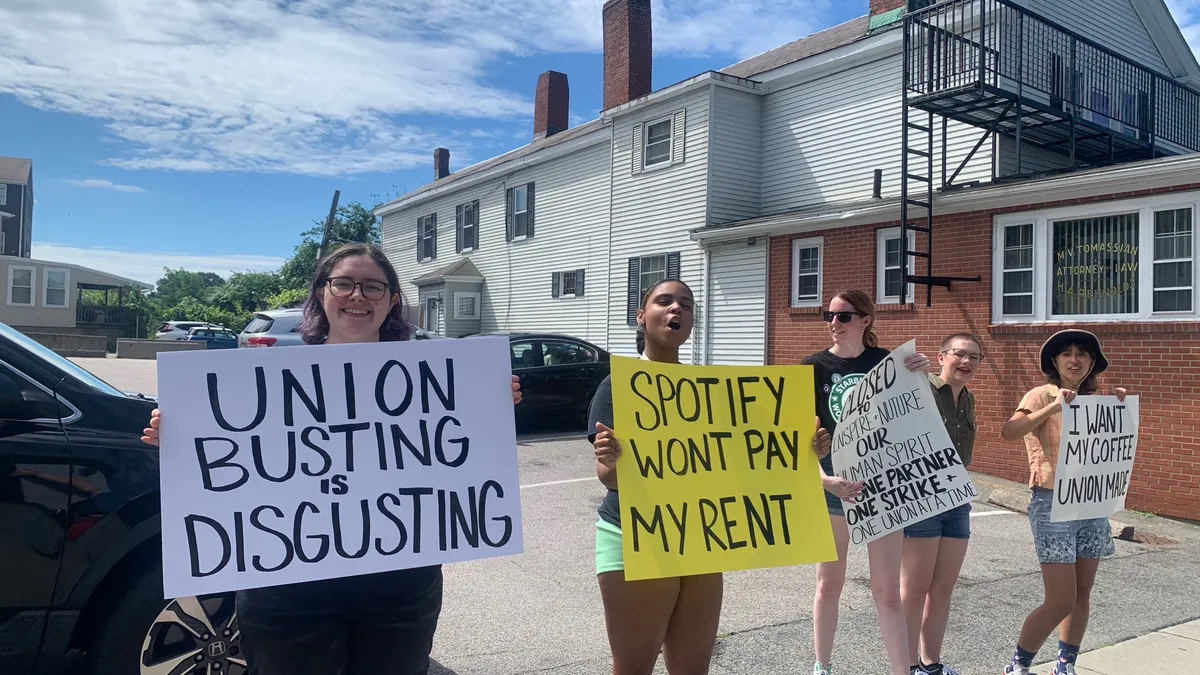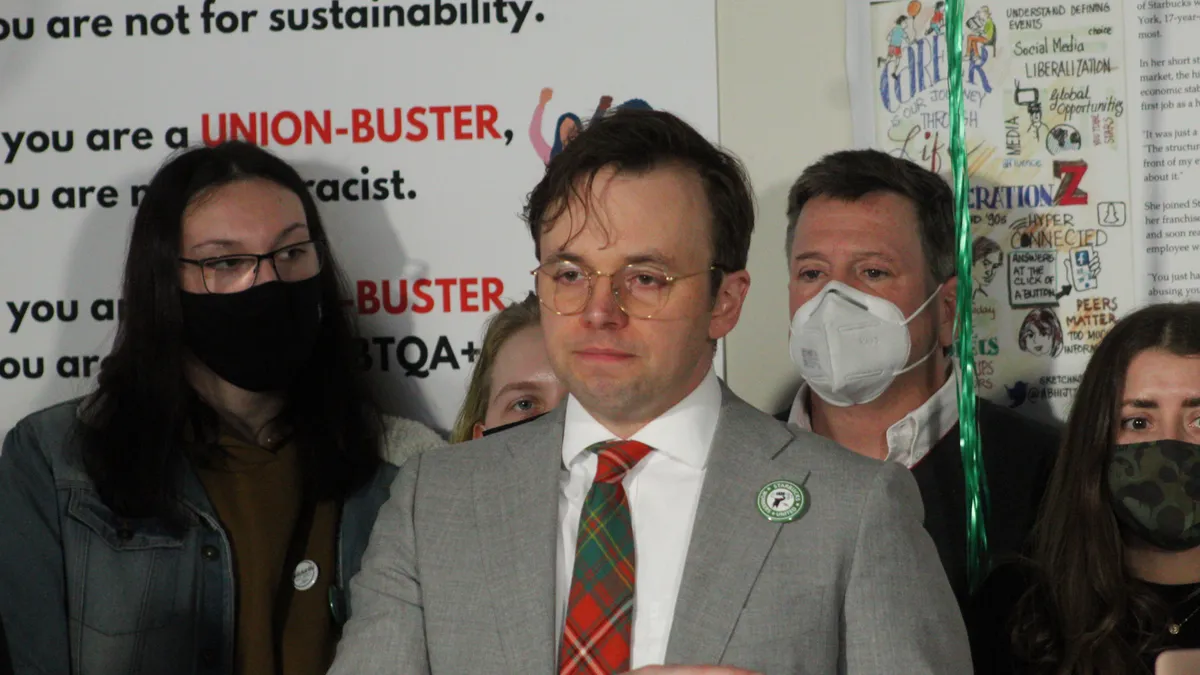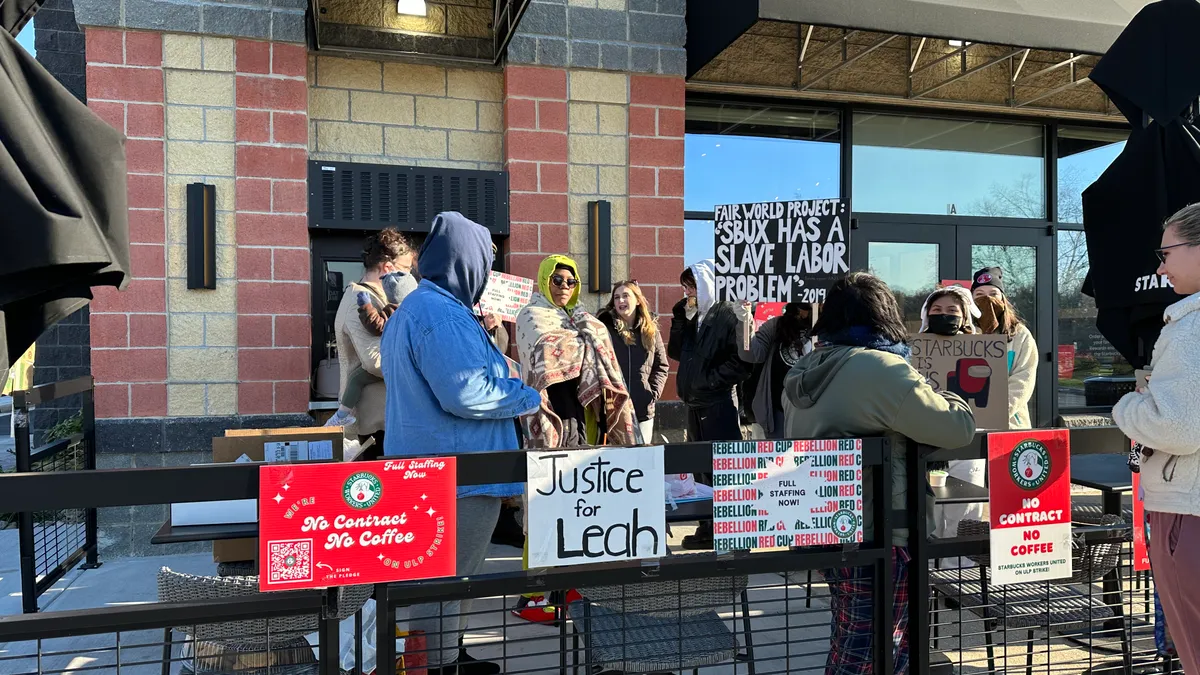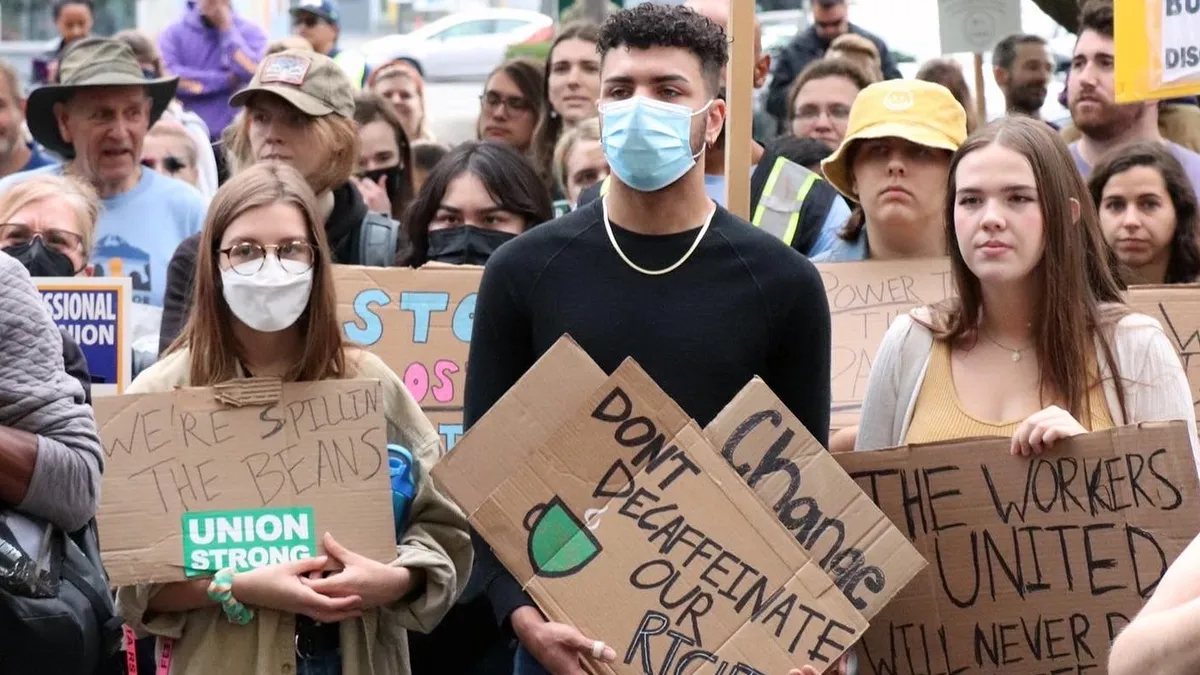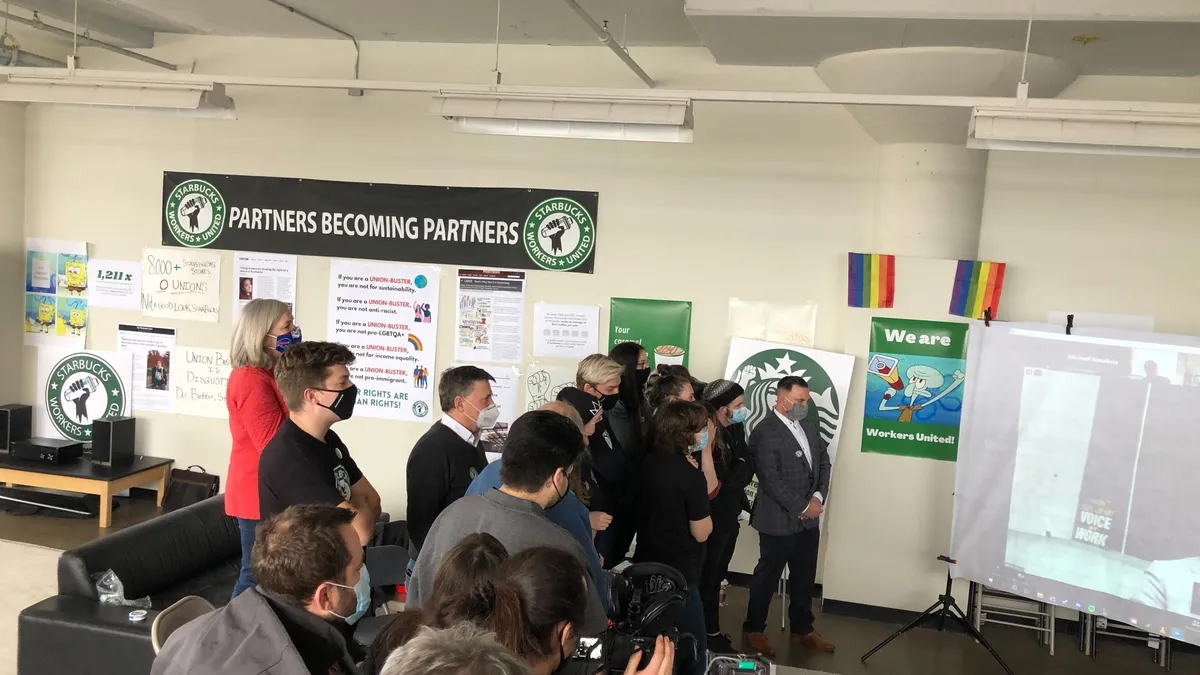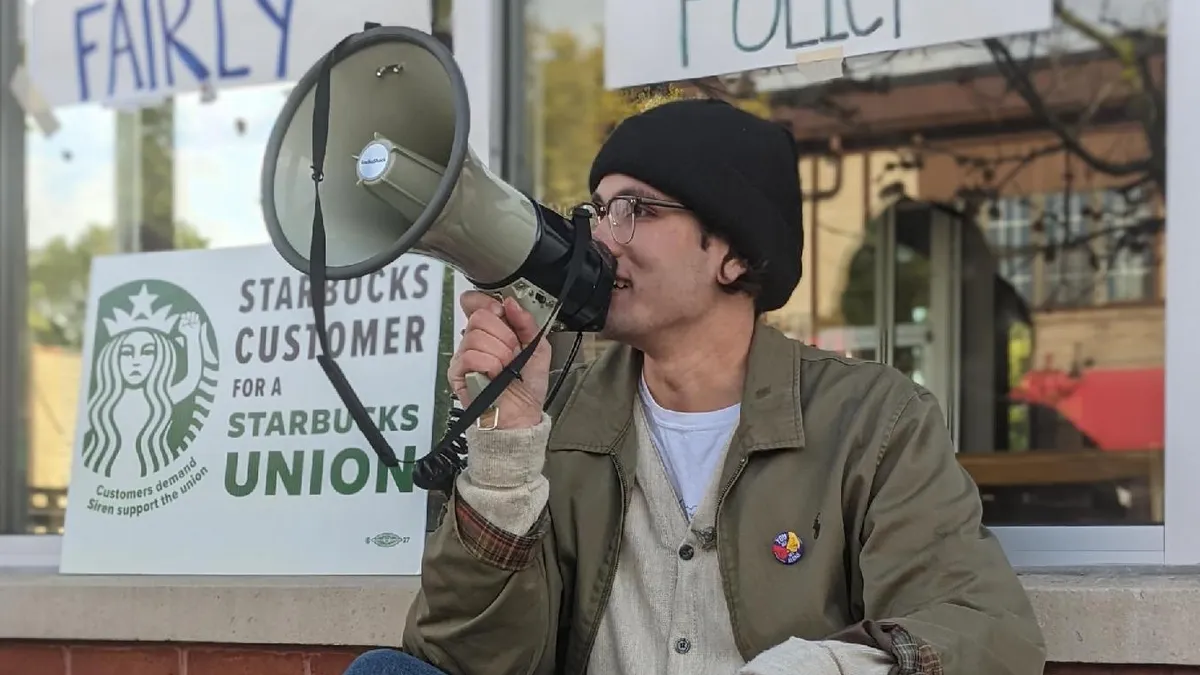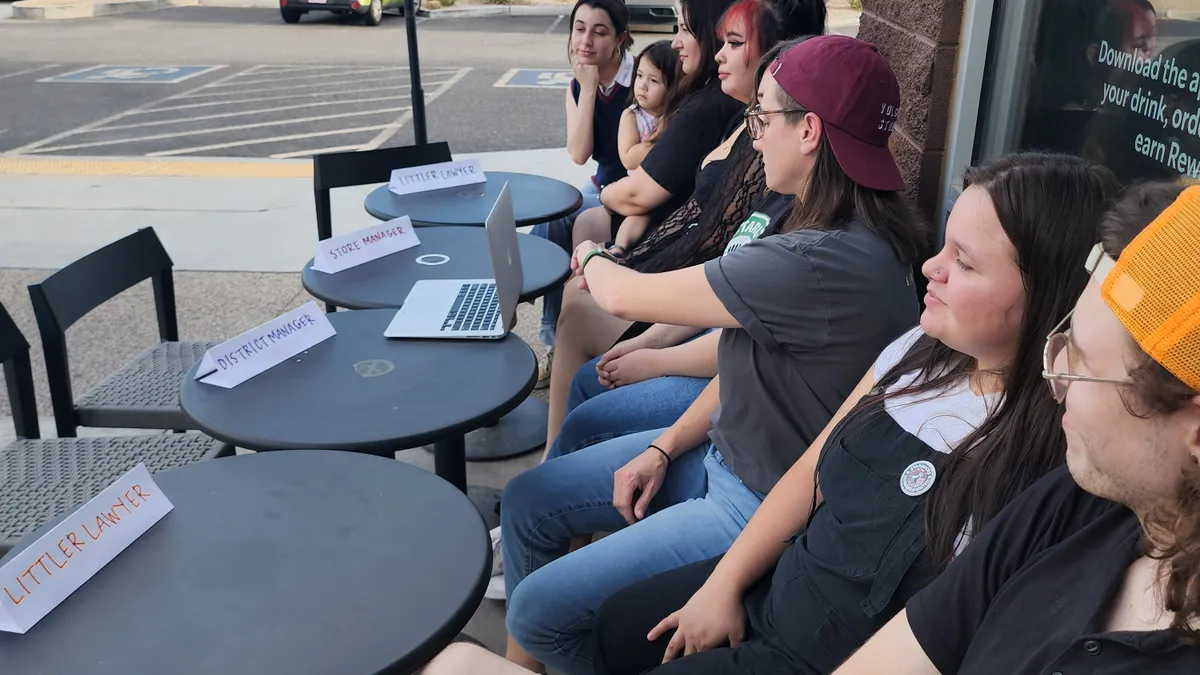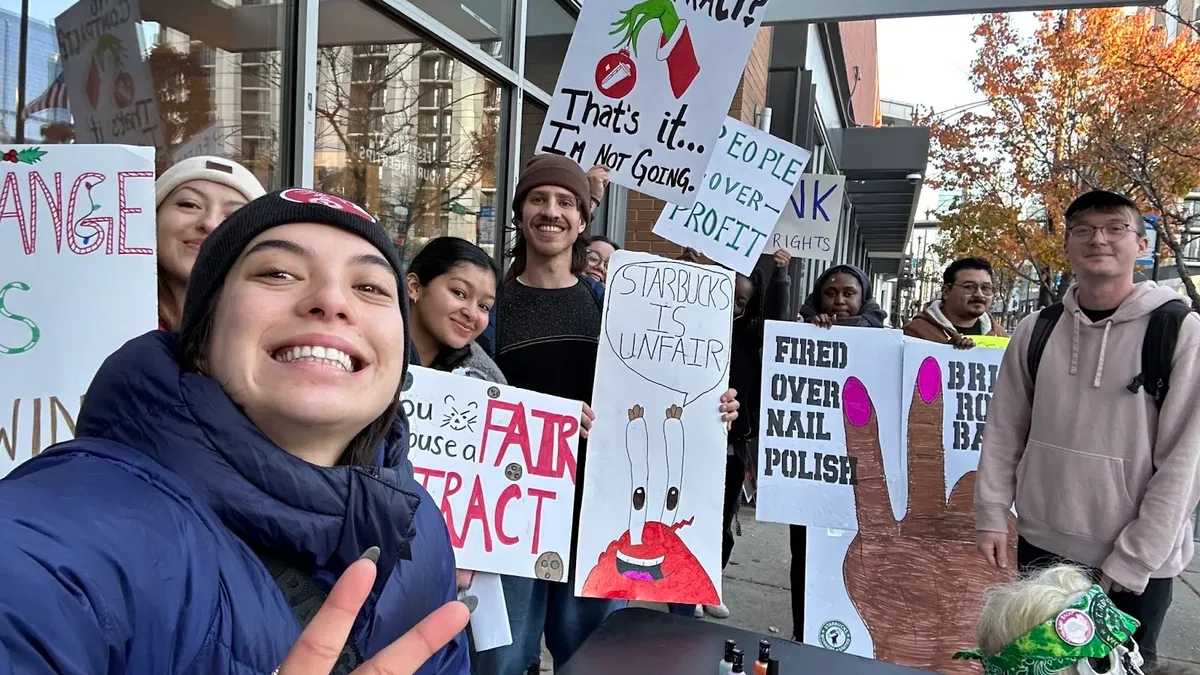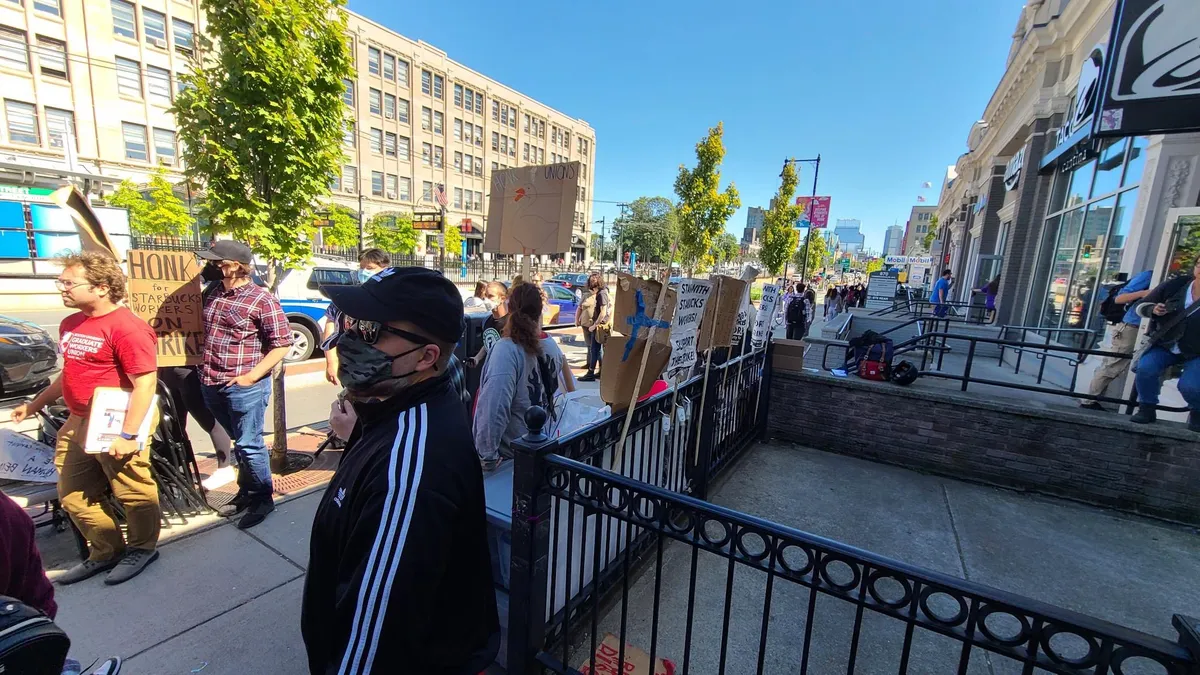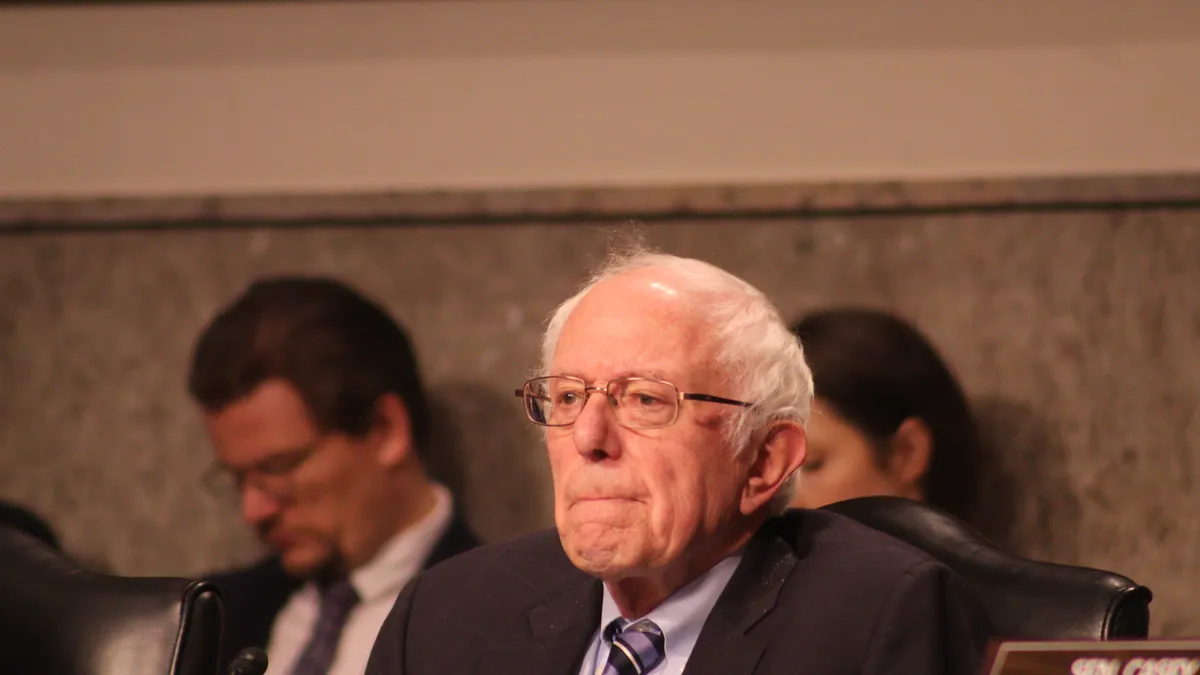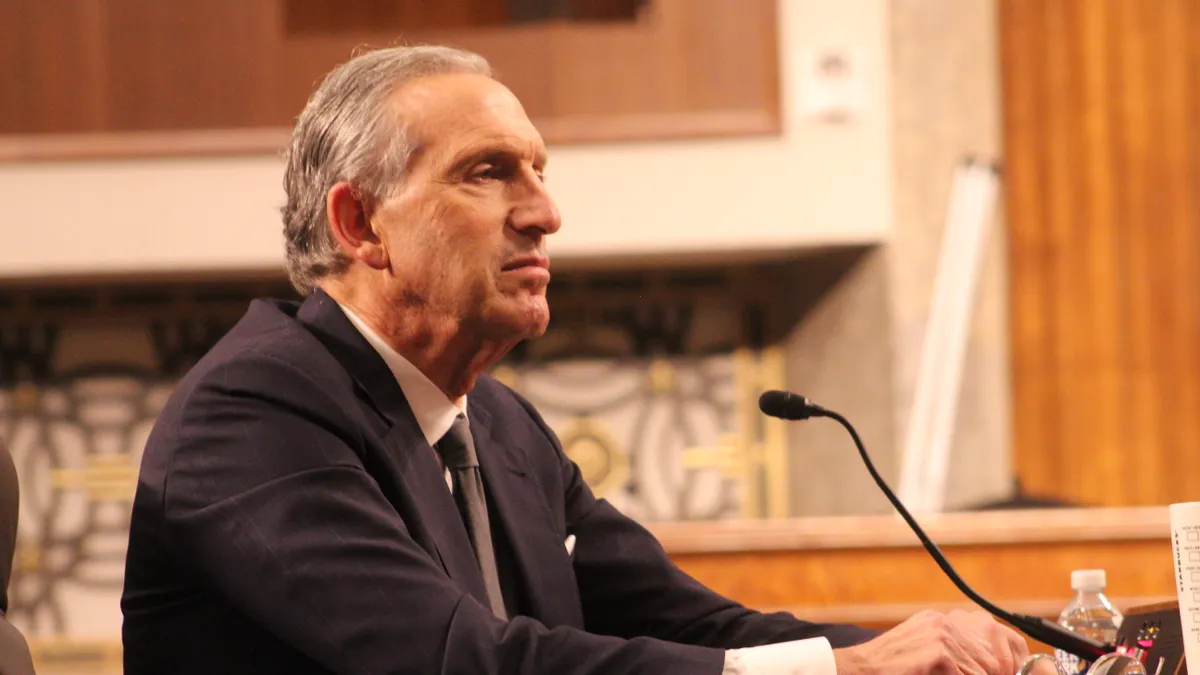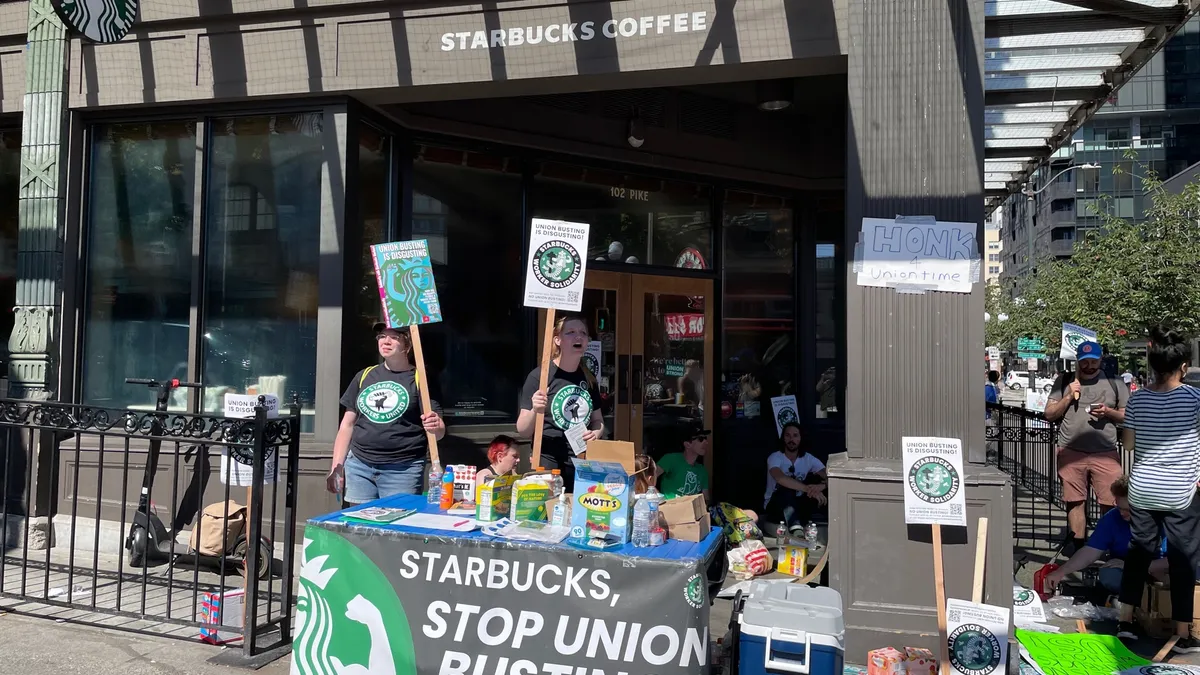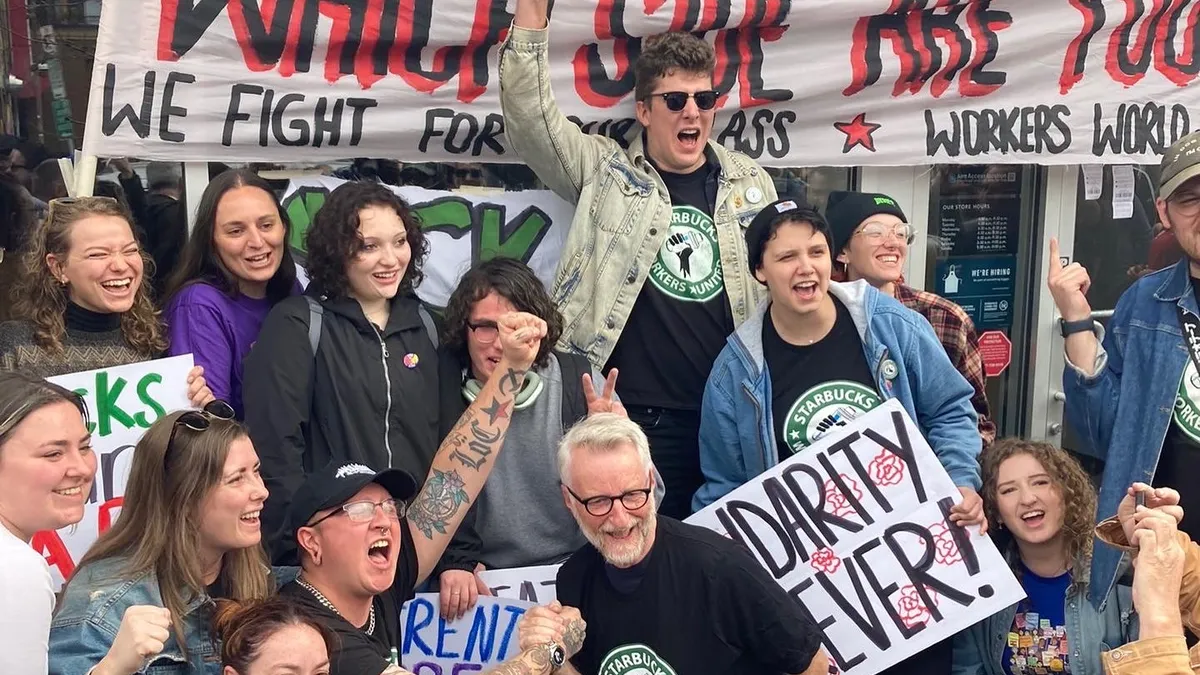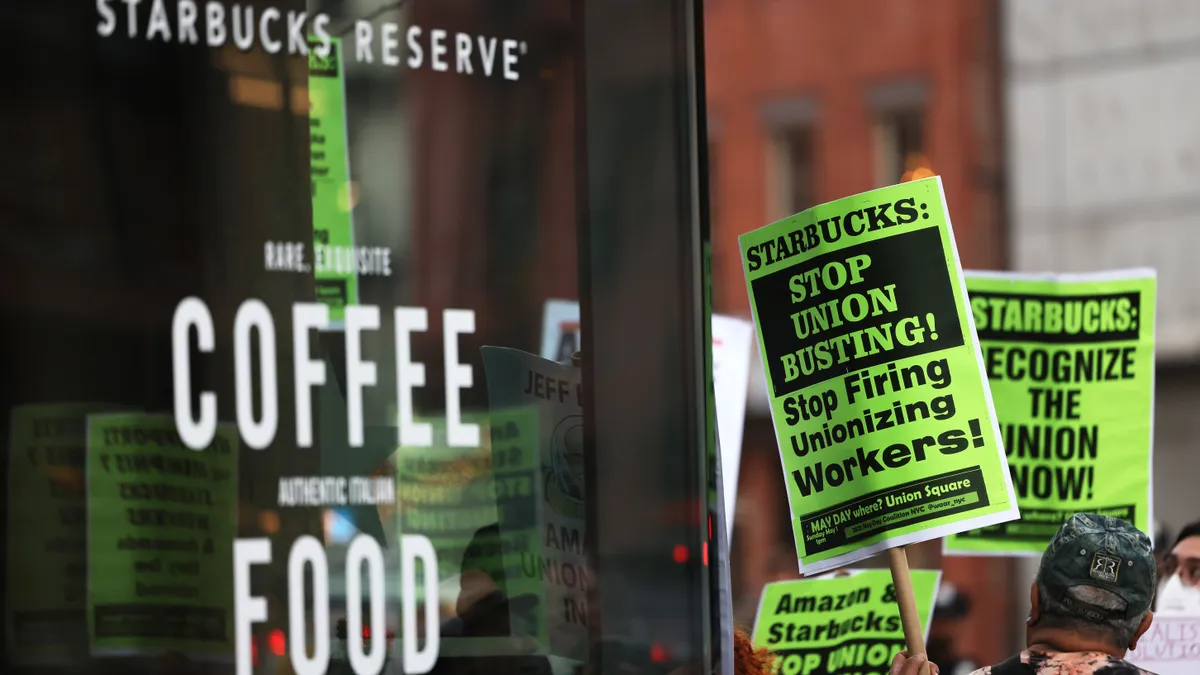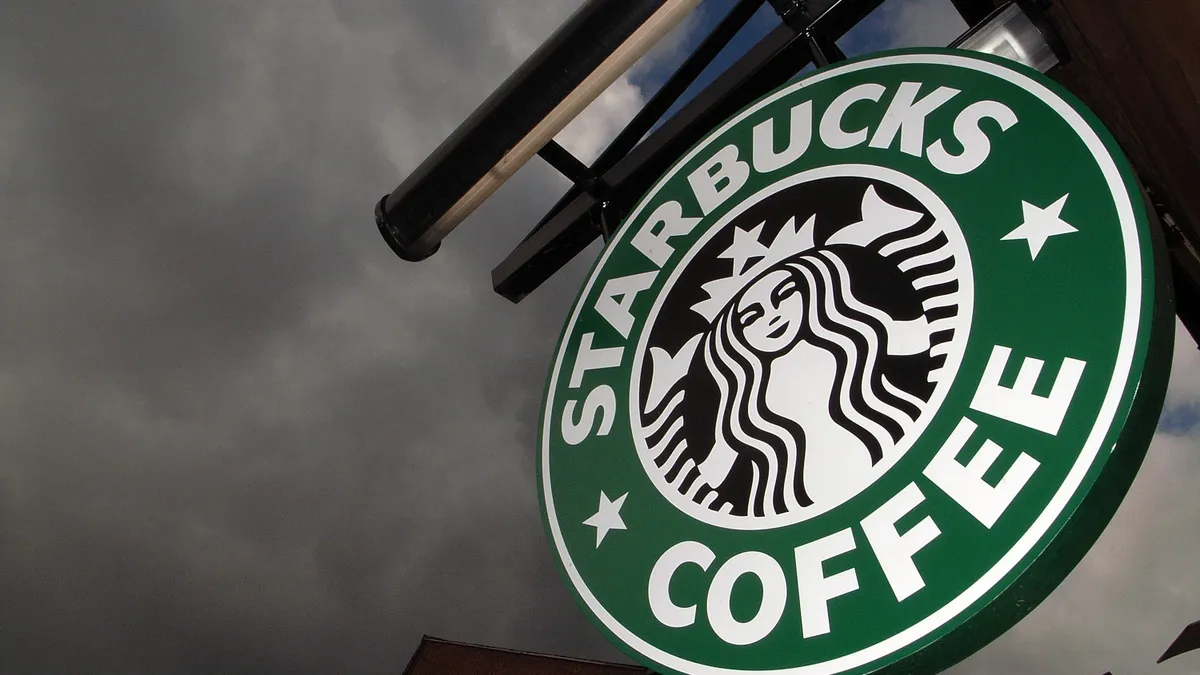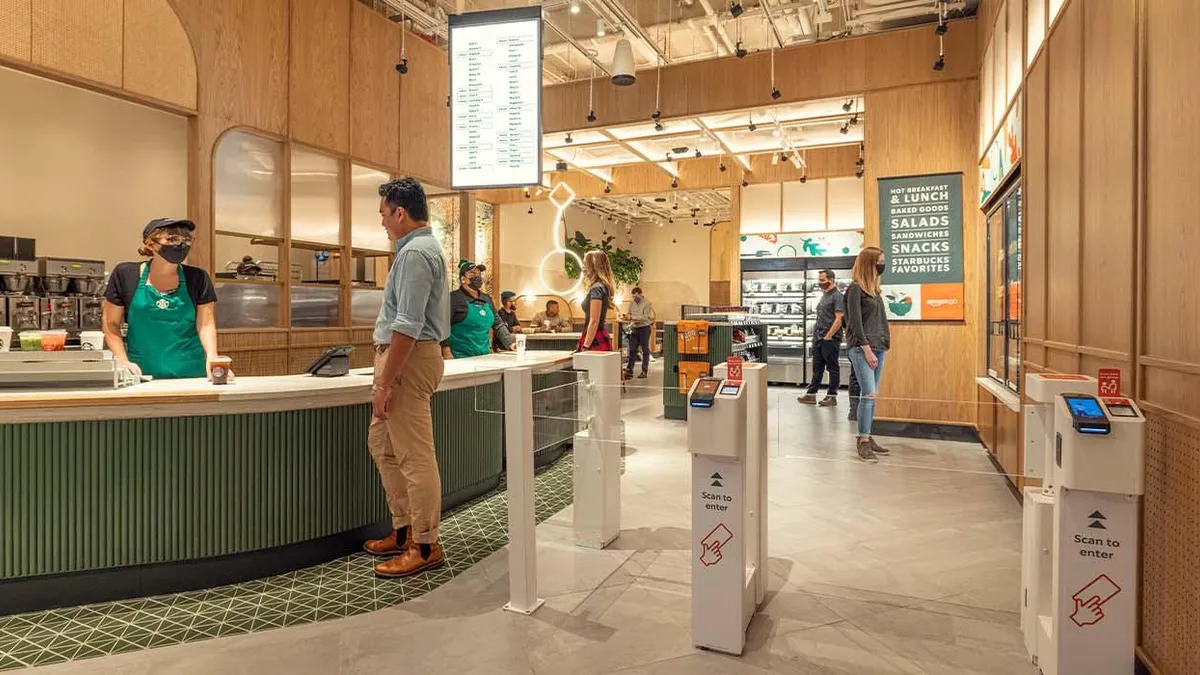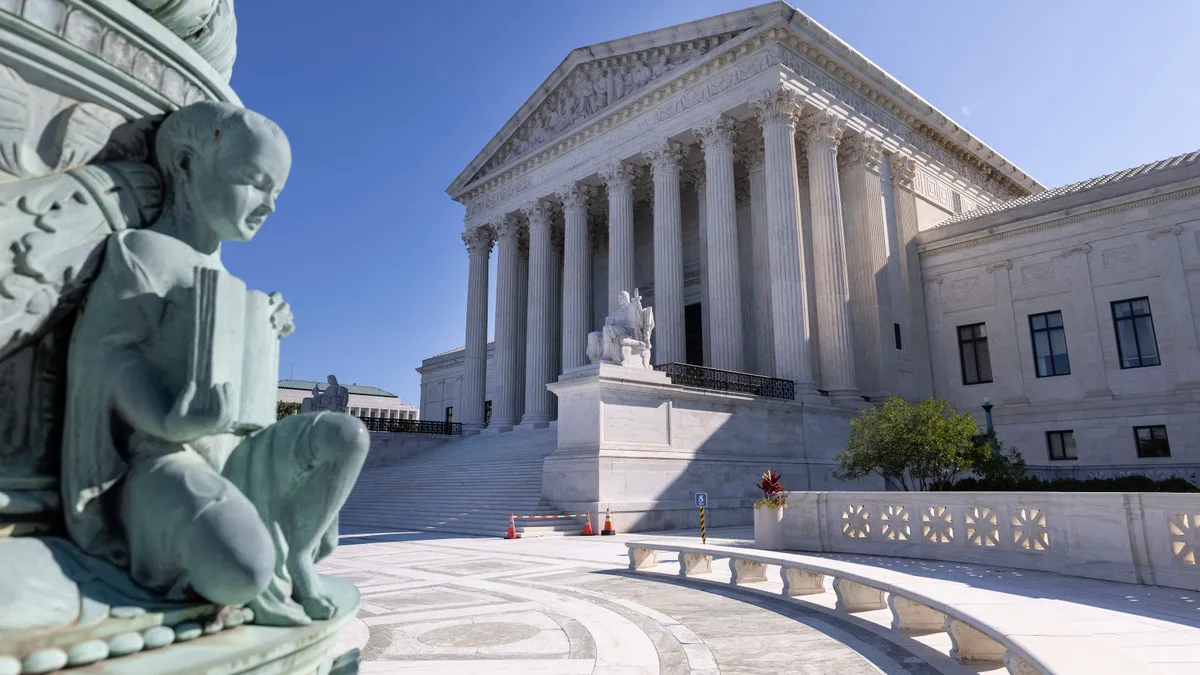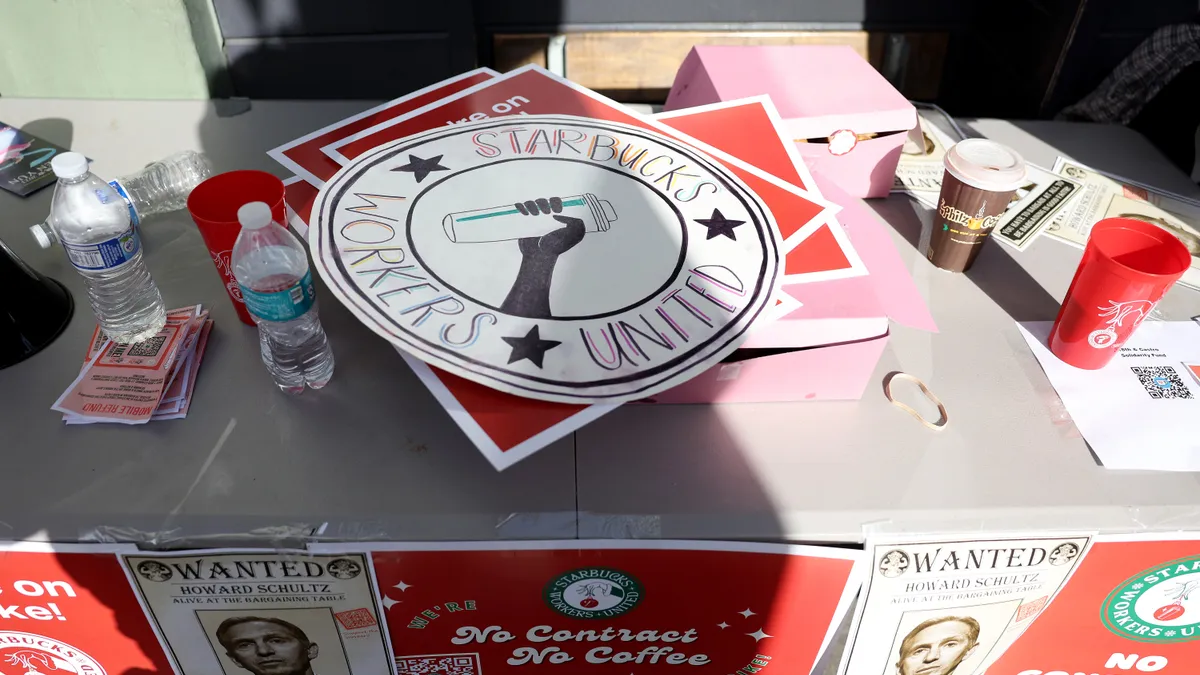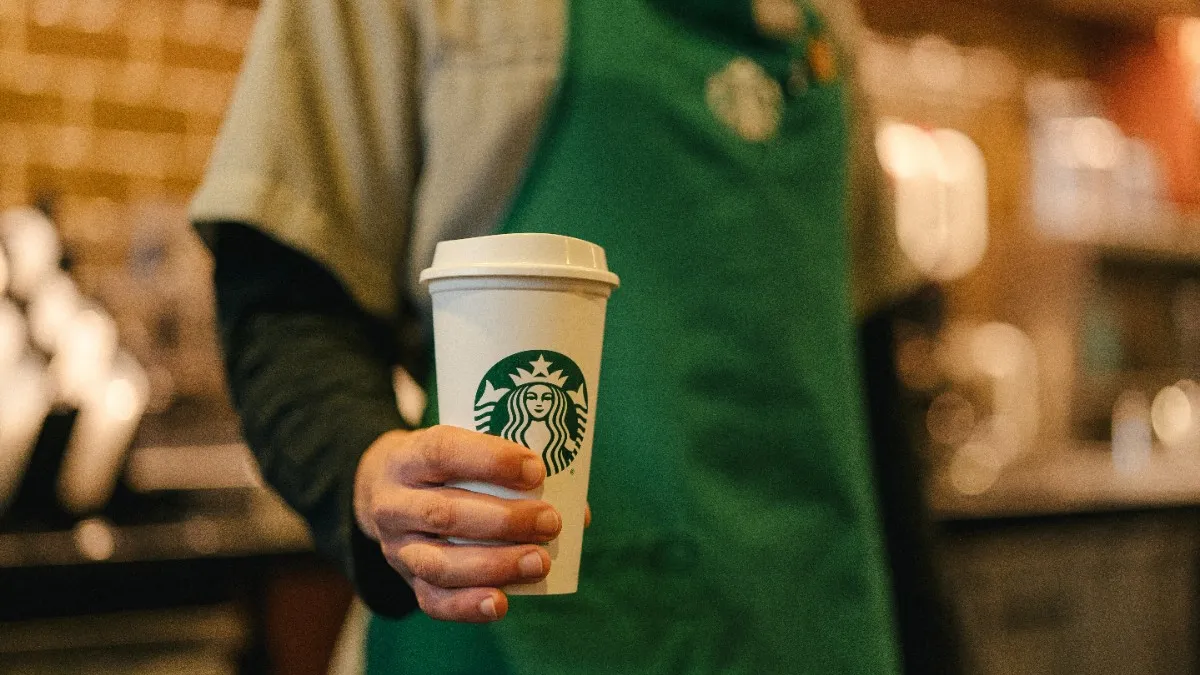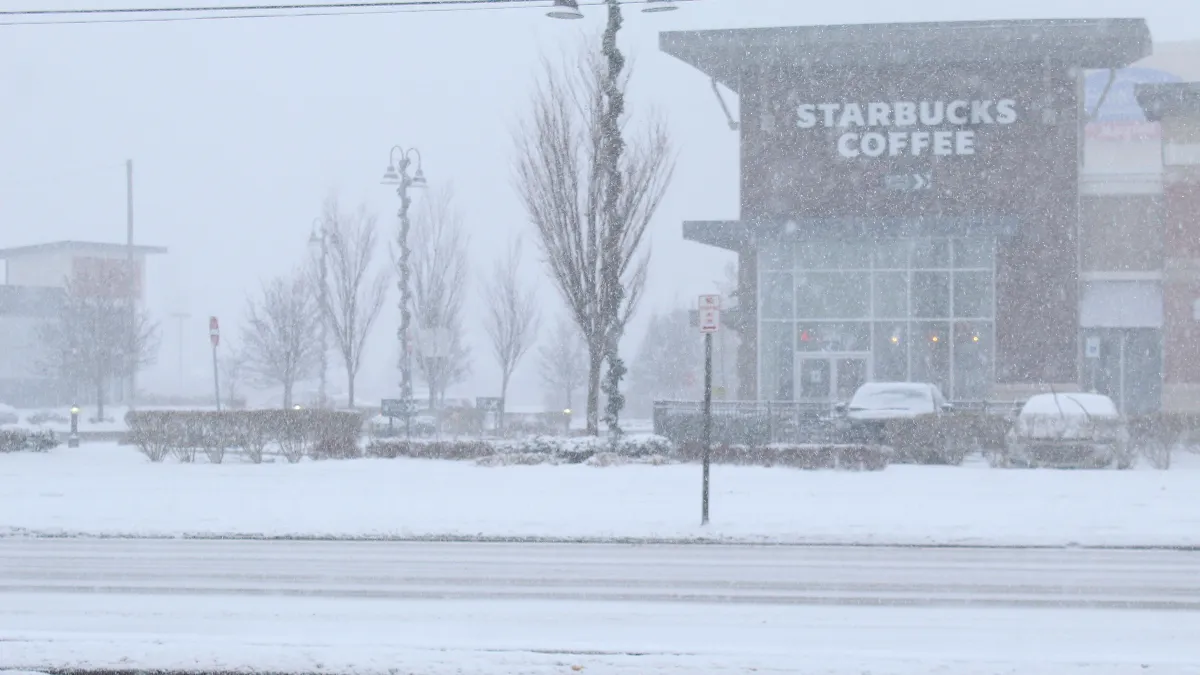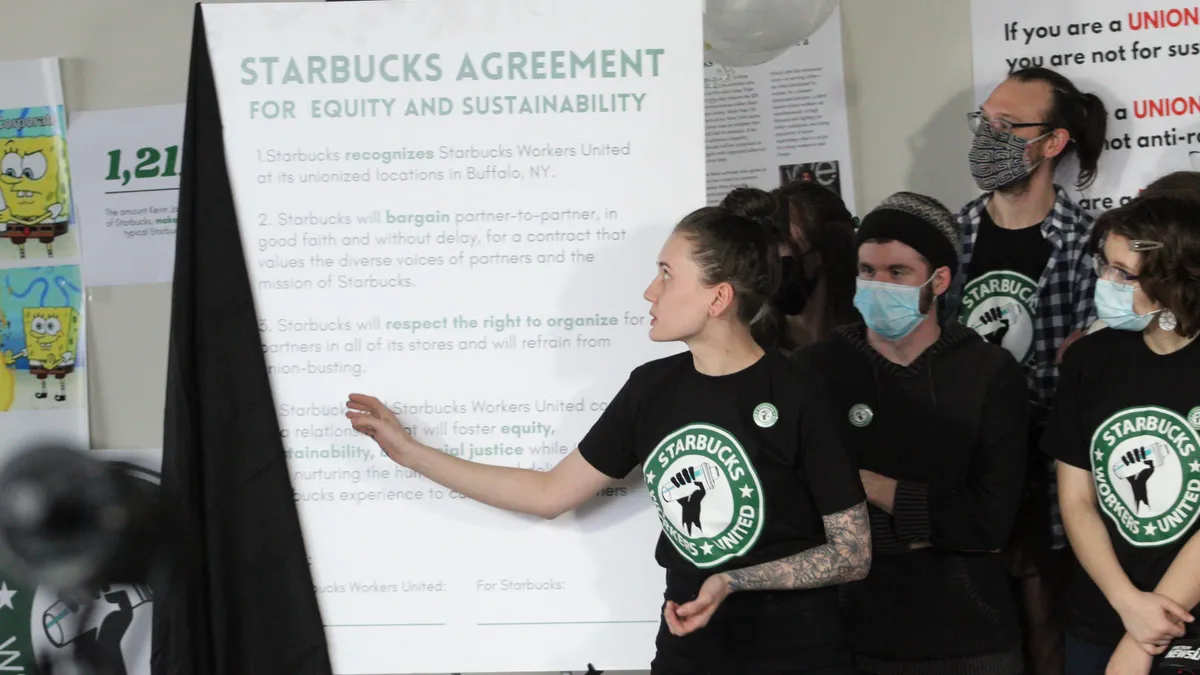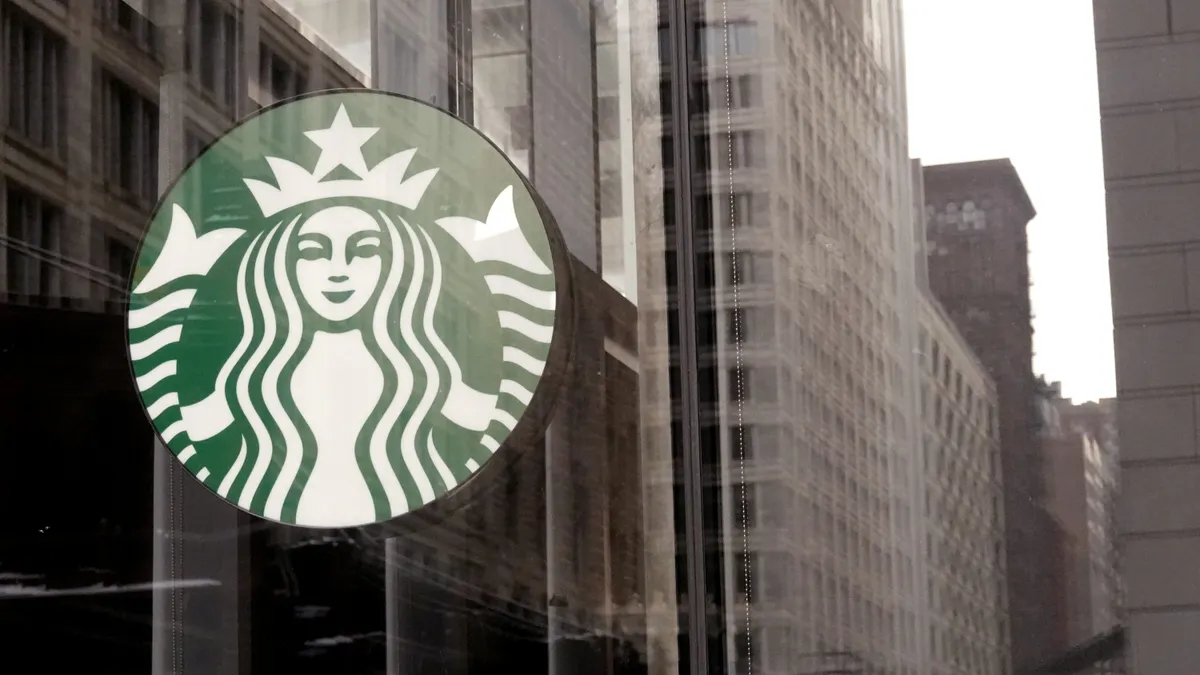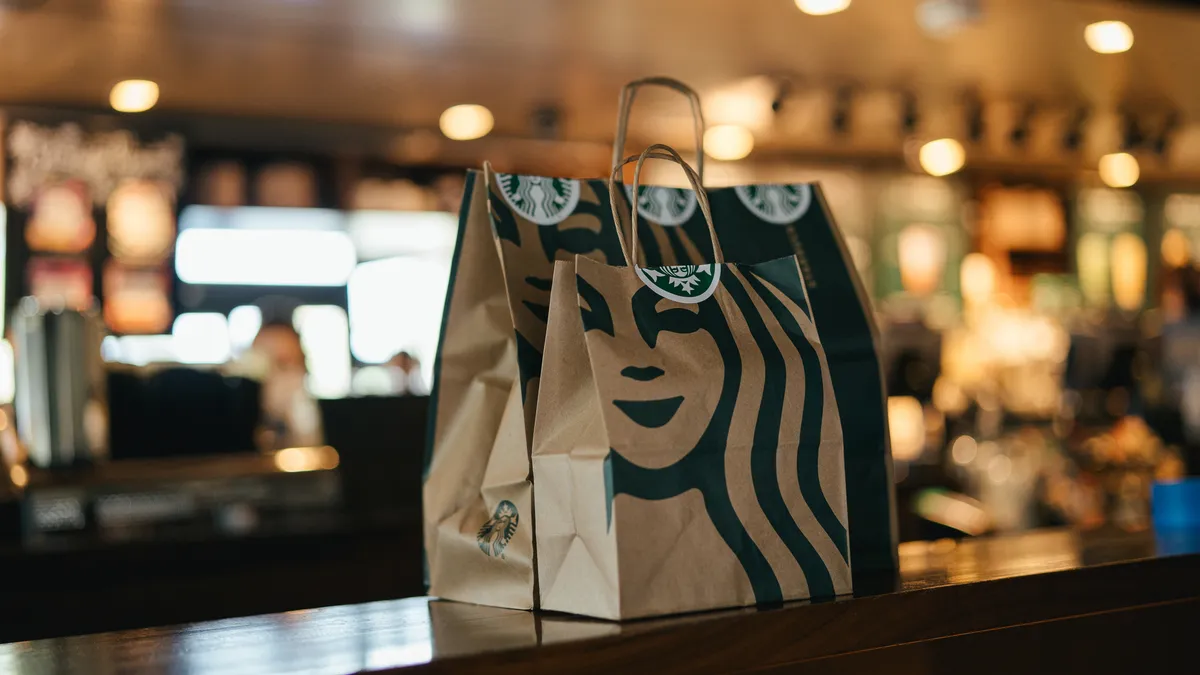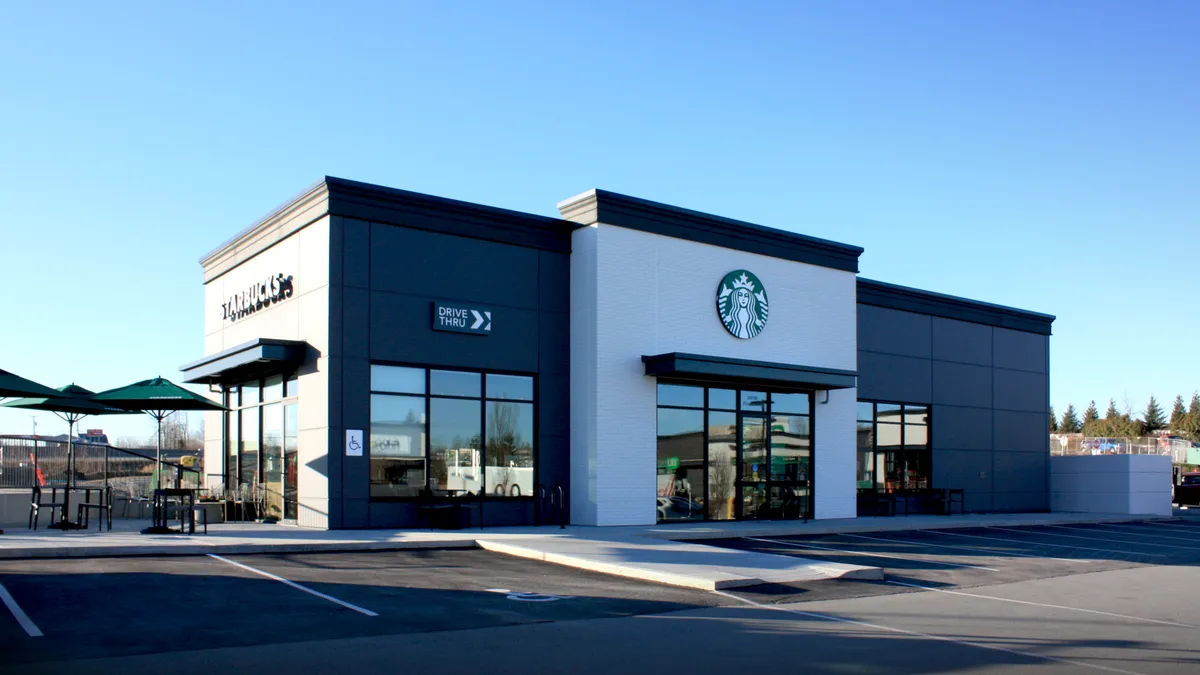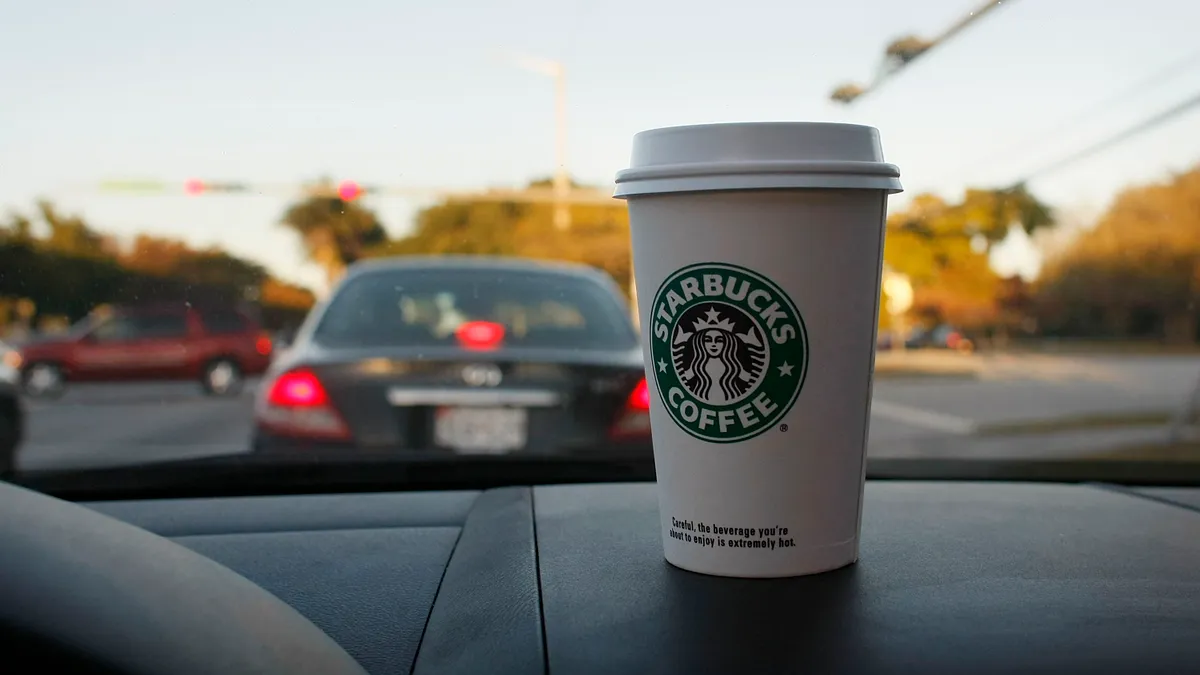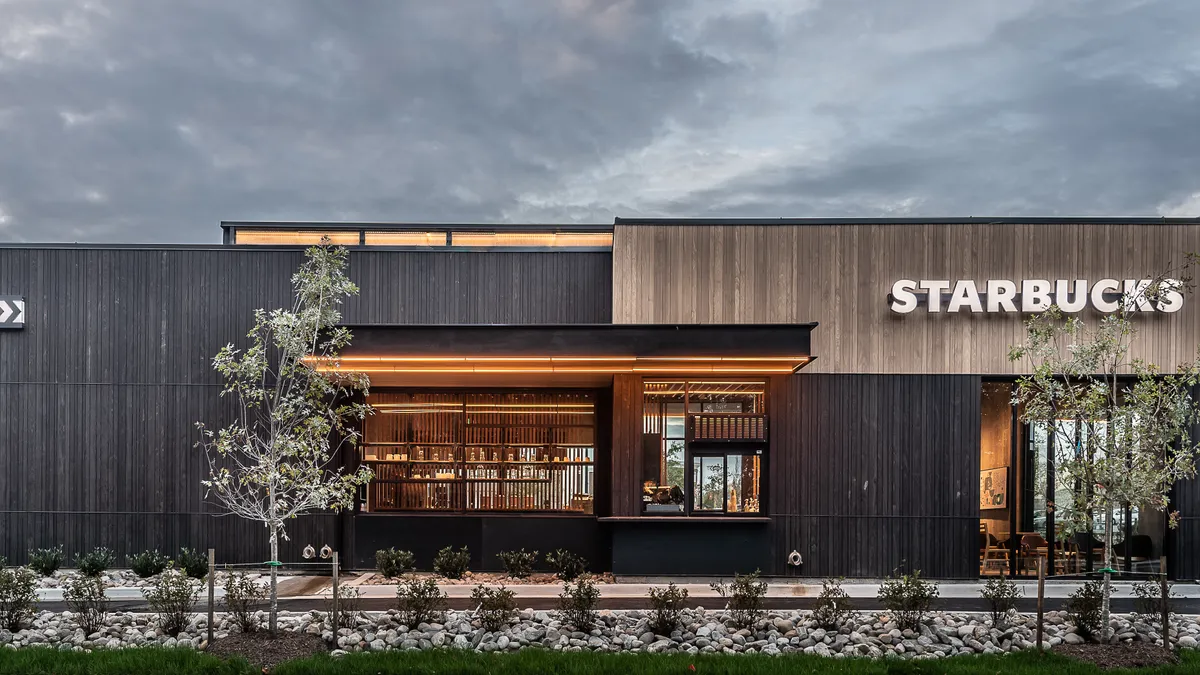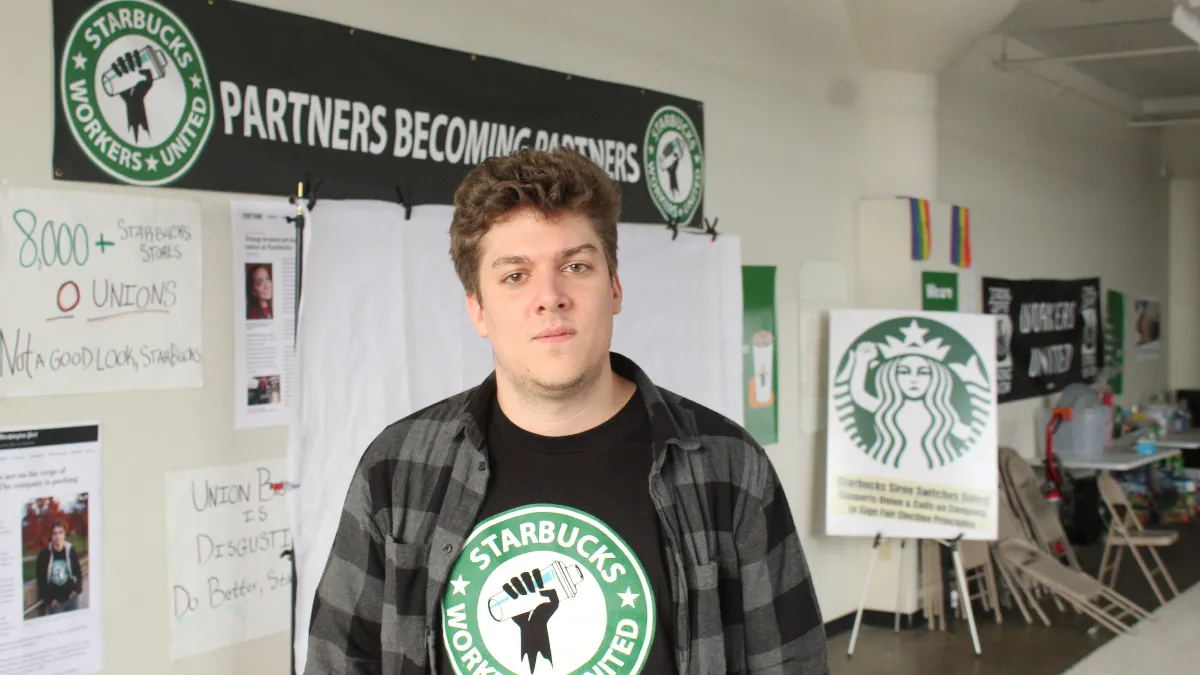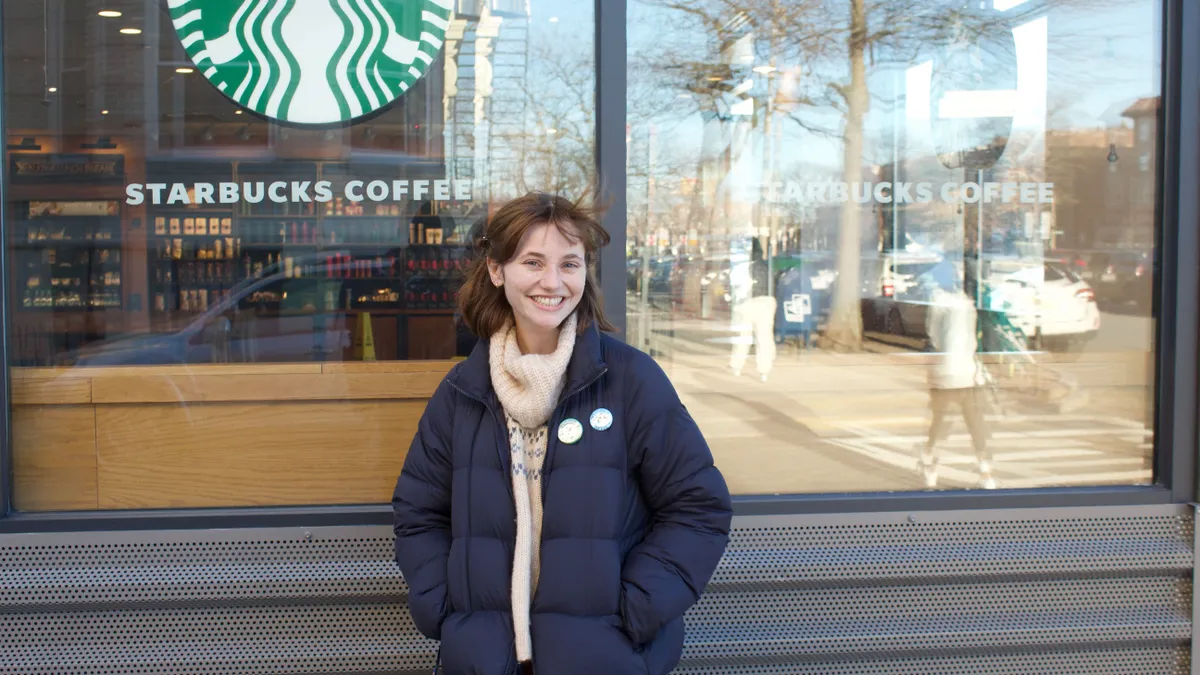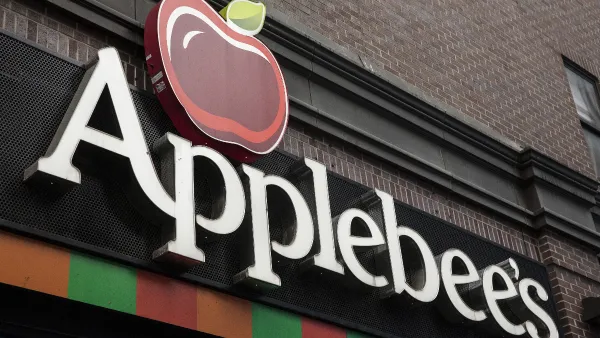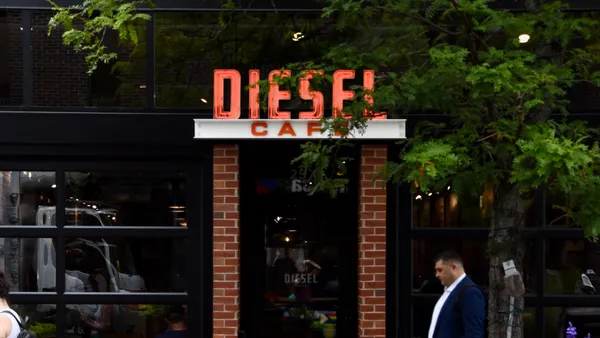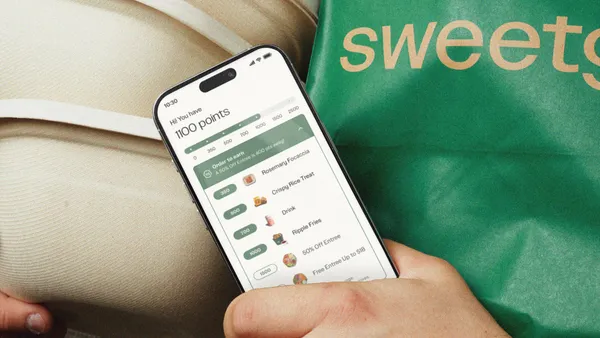UPDATE: Feb. 22, 2024: This article has been updated with comments from Starbucks.
Dive Brief:
- Students at 25 universities will stage a national day of action against Starbucks on Thursday in solidarity with Starbucks Workers United. The students are demanding that universities “either [stop] sales of Starbucks coffee on campus or [send] a public message of solidarity for Starbucks workers,” according to a press release emailed to Restaurant Dive.
- The union and its allies will stage events at a wide range of universities, including major public universities like the University of Washington, University of Wisconsin-Madison, two SUNY schools, two schools in the University of California system and Rutgers. Demonstrations are also slated to take place at prestigious private universities, including Georgetown, University of Pennsylvania and the University of Chicago.
- SBWU has increased pressure on Starbucks this week. The union’s labor allies are pushing Starbucks to disclose information on the costs of its union response. Workers at a record 21 cafes announced their intent to unionize on Tuesday, and SBWU members in Chicago and Philadelphia filed several of Fair Workweek complaints against the coffee giant this week.
Dive Insight:
At Georgetown specifically, students are asking the university to sell stock it holds in the company, said Ella Clark, a student who led the organizing effort at a Starbucks store in California before college. Clark said the university owned about $5 million in Starbucks stock.
Early efforts to enlist consumers on the side of the organizing workers didn’t seem to impact Starbucks much, but the company’s decision to sue Workers United over pro-Palestinian social media posts may have hurt the chain’s traffic in recent months and increased its reliance on ultra-loyal customers to meet its goals. In that context, activism among younger consumers could pose a greater threat to Starbucks, especially as competition heats up for snacking dollars and medium-sized competitors roll out aggressive growth plans.
Starbucks has used controversial tactics in its campaign, including workplace surveillance and diluting the electoral pool at unionizing locations, firing workers involved with the union in alleged retaliation, and alleged solicitation of grievances in an effort to stymie union organizing.
Clark said the company’s tactics eroded support for the union in her store, and she had a promotion revoked when Starbucks figured out she was leading the campaign. The National Labor Relations Board later found the company violated federal labor law in its treatment of Clark.
“We got over 70% of our store to sign union cards at the beginning,” Clark said. “Due to Starbucks' intense, aggressive union-busting campaign, we lost those votes throughout the period between when we filed and when we voted.” Clark said the union lost by 1 ballot.
Students framed the actions as a way to protect American labor law from erosion.
“As college students, we’re the next generation of workers, so when we graduate, we want to make sure that our rights and value as workers are respected,” Valli Pendyala, a Georgetown student, said in a statement. “The first step towards ensuring that is fighting for Starbucks workers here and now.”
In 2023, a student occupation successfully pressured Cornell University into deciding not to renew its contract with Starbucks in 2025 after Starbucks closed all of its locations in Ithaca, New York, after they unionized.
In a statement emailed to Restaurant Dive, Starbucks said it was engaged in “efforts to negotiate fair contracts for partners at stores that have chosen union representation.”
The Strategic Organizing Center, a labor federation which includes the Service Employees International Union, of which Workers United is a part, is backing a slate of three board candidates for election at Starbucks’ shareholder meeting on March 13.
The SOC, in a presentation released this week, estimated that Starbucks has spent $153 million directly fighting unionization, and exposed itself to $87 million in liabilities as a result of legal proceedings and NLRB charges.
Starbucks claims it operates in compliance with labor law, and disagreed with Clark’s assertion that it engaged in union busting. Starbucks said it didn’t spend any money on “anti-union activities,” but did not specifically dispute the SOC’s figures, which estimate the cost of litigation, consulting, time lost due to captive-audience meeting, and liabilities stemming from NLRB general council complaints and administrative law judge decisions.
According to Starbucks’ 2023 global impact report, the company pays its workers an average of $17.42 an hour. If the SOC’s estimates are accurate, Starbucks’ expenditures fighting the campaign are equivalent in cost to about 13,777,267 labor hours, or 1,450 hours of work (more than $25,000 in wages) for every one of the approximately 9,500 Starbucks workers the NLRB says are represented by Workers United.



